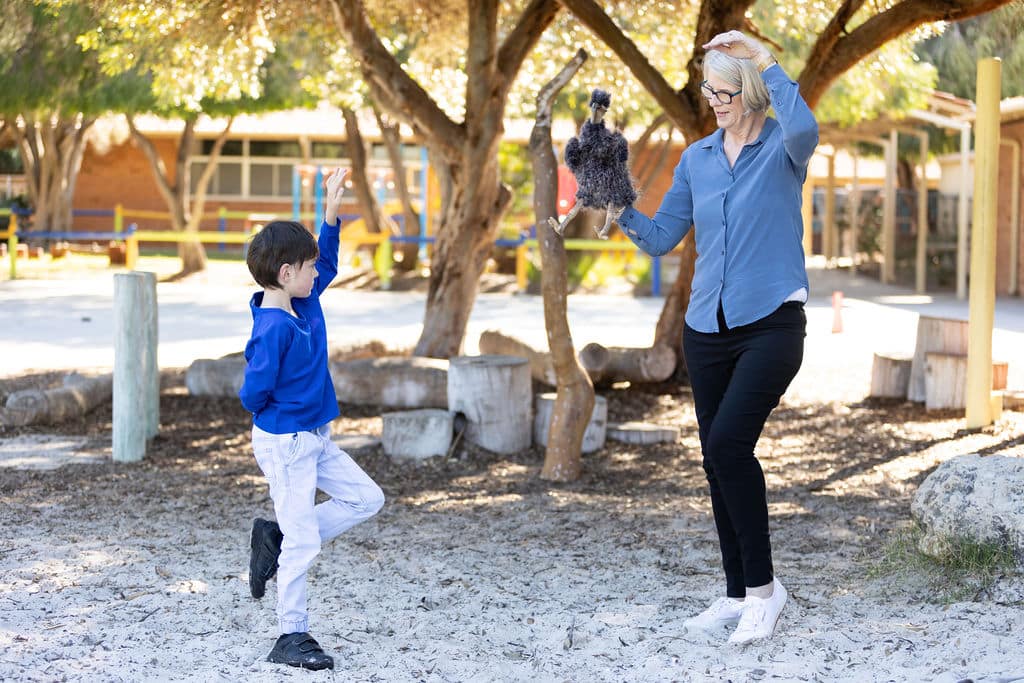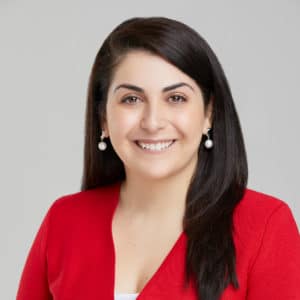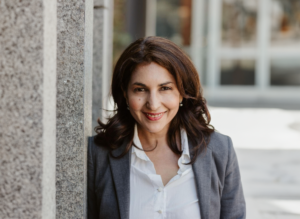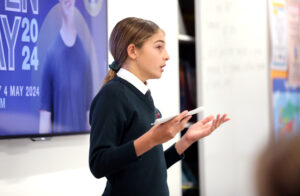Sue McLaren (1978) : Empowering Young Minds with Animal Fun

Upon graduating from Santa Maria College in 1978, Sue McLaren found herself without a predetermined path. Her journey led her through various chapters, experiencing numerous facets of life before ultimately discovering her true passion – supporting young children. In this blog, she recounts her cherished memories from her time at the College, reflects on her role as the director of an organisation, and shares insights into her favourite pastimes.
Could you recount your experiences at Santa Maria College? Are there any particular memories from that time that you hold dear or consider noteworthy?
I embarked on my journey at Santa Maria back in 1967. During those times, there was no kindergarten or pre-primary, making Santa Maria my first introduction to the world of education. Remarkably, I remained a part of the Santa Maria community all the way through to Year 12.
My fondest memories are centred around the primary school playground, which was entirely covered in bitumen. The high monkey bars, the Ocean Wave, see saws, and the whizzy adorned the landscape – structures that would likely raise eyebrows in terms of health and safety by today’s standards, but they provided endless joy and laughter.
Throughout my academic journey, I was fortunate to encounter some truly exceptional teachers. Sister Margaret Giumelli in Year 7 left an indelible mark, fostering my love for literature and drama. Of course, Hal Davies played a pivotal role in shaping my appreciation for the dramatic arts. Miss Ball guided me through the realms of Years 11 and 12 Literature, Mrs Smith-Gander served as a nurturing Homeroom teacher, and Mr O’Grady stood out not only for his unique fashion sense of sporting shorts with long socks but also for chauffeuring us to numerous extracurricular activities.
My time at Santa Maria was transformative, teaching me to be confident in my abilities, nurturing a love for learning, and fostering critical thinking. The school’s values have remained steadfast in my heart, influencing my approach to life – always striving to give more than I take.
Following graduation, what endeavours did you pursue or engage in?
I was not sure what I wanted to do when school came to an end, so I floundered for a bit, starting university but withdrawing after only one semester. I backpacked solo around Europe and worked in a few different jobs both in private enterprise and for the government before getting married in 1984. It was while living in New York in 1990/91 that I discovered my true passion was going to be doing some type of work that supported young children, particularly children with disabilities.
After returning to Australia, I went back to university and completed a Social Science Degree majoring in Children and Family Studies.
My main message to all students who feel unsure what direction to take after school – is just explore, try new things, say yes to every opportunity that presents itself and then most often you will find a spark that sends you on a journey.
There are many pathways to university and further study, and it is never too late to learn. So don’t feel pressure or panic if your ideal career path isn’t obvious at 15, 16 or 17 but if you do start a course and feel it is not for you, my advice is to make sure you formally withdraw from the course as this does not have a negative impact on your academic record AND will save you a lot of money!

How did you become a part of the Animal Fun initiative?
In 2008 I decided that I would like to participate in research into children’s health and wellbeing so I put a CV out to some contacts I had within universities. One day out of the blue I received a call from the Emeritus Professor Jan Piek at Curtin University asking when I could start working with her as she needed a Research Coordinator for a big project she was heading up.
This project was researching the physical and mental health of preschool aged children and investigating if an intervention program could help children address areas of weakness. This was exactly the kind of work I was interested in, so I grabbed the opportunity with both hands. Jan is a world-renowned expert in the field of developmental psychology. Her research interests are primarily on the role of motor development and how this can impact other areas of a child’s development. She has been instrumental in helping me to spread the word about Animal Fun internationally and it has been an absolute privilege to work with her.
What is the mission and vision of Animal Fun as an organisation?
Animal Fun is a play-based movement program meticulously crafted to enhance the physical and social/emotional wellbeing of young children between 3 – 6 years old. It addresses a pressing concern. Our research underscores a decline in children’s foundational skills, attributed to prolonged periods of sedentary behaviour and insufficient outdoor activity. This deficiency manifests in a lack of essential skills like balance, core strength, and coordination. Consequently, these challenges make it difficult for children to actively participate in physical activities, often resulting in feelings of isolation and exclusion on the playground, ultimately contributing to heightened levels of anxiety.
After three years of dedicated research, my passion drove me to translate our findings into actionable initiatives, reaching out to those who needed it the most. With the unwavering support of the Animal Fun team, I took the initiative to transform the modest photocopied handbook, initially created for the research project, into the comprehensive set of resources we have today. Thanks to some funding support from the Mental Health Commission of WA, I began disseminating the program across schools in Western Australia. Today, Animal Fun has gained widespread adoption, with over 60% of all schools in WA actively incorporating the program.
In 2016 Curtin University gave me the copyright to run the program as my own business. I have been able to disseminate it right around Australia, with Victoria and Queensland having the biggest uptake to date. This means I am travelling for at least one to two weeks each month to conduct teacher training workshops throughout those states.
Animal Fun has also been translated into Italian, German, and Portuguese with the Dutch translation to be released in early 2024. This has given me the opportunity to present at international conferences around the world.

In the developmental phase of Animal Fun, what specific contributions were made by professionals such as physiotherapists, occupational therapists, and psychologists? How did their expertise shape the program?
Our Curtin Research Team consisted of representatives from the schools of physiotherapy who developed the activities targeting gross motor skills, occupational therapy for fine motor skills and psychologists for social/emotional skills. Each activity within the program centres around a specific animal movement. To the child, it is a delightful game of pretending to move and behave like the featured animal. However, from the therapist’s perspective, these activities are strategically designed to target specific muscle groups and skills. It is a seamless blend of imaginative play for the child and precise therapeutic intervention for optimal development. The premise was if the children found the activities to be fun, that they would engage in this pretend play on multiple occasions – hence practising the skills more frequently. This practice would lead to improvement in skill acquisition and confidence for the child.
All of the Animal Fun team were experts in their field and have published widely in the academic literature. They not only brought their research experience to the project, but a wealth of knowledge about healthy development in the early years and how crucial this time period is for the overall development of the child.
In your role as the director of the program, could you share any challenges or obstacles you’ve encountered and elaborate on the strategies employed to overcome them?
When I took over the program as my own business, I had a really steep learning curve. Whilst I was familiar with the program and the research and the theory behind it, I knew absolutely nothing about running a business. So, I had to learn very quickly. Luckily, my eldest son was a great help and was able to get me set up with a website and taught me how to do the basic navigation to receive orders and write blogs. My younger son has been my primary inspiration for this type of work. Through him I learned first-hand how important these skills were and the difference that early intervention can make in the lives of children.
My experiences in New York taught me about the value of upskilling parents and sharing knowledge with them so you can really work as a team to maximise the learning journey for all children.
I also had great financial assistance and advice from my husband (who has over 40 years banking experience) and from one of my sisters who helped with all things accounting.
I worked with an incredibly supportive business coach for several months to learn some basic marketing techniques and of course how to engage with social media – which I must admit is still a work in progress!
During Covid-19, I once again was on a steep learning curve as I had to quickly pivot from doing face-to-face workshops at schools to learning how to do them online.
I did not have the time or the finances to enrol in courses to learn these skills, so I spent many hours watching YouTube videos to teach myself and reaching out to professionals for advice when needed.

Envisioning the trajectory of the program, how do you anticipate the evolution of Animal Fun in the coming years?
I am really thrilled with what we have achieved so far. It is great to think of the number of children who are all starting their more formal schooling with stronger foundation skills because in some small part due to participating in Animal Fun.
We are really expanding into the East Coast, and I envisage this will keep me busy.
In the next couple of years, I hope to find some suitably qualified people with a similar passion who I can train to help me with the demand for workshops and to carry on the Animal Fun story long after I have retired.
When you have some leisure time, how do you typically choose to spend it?
I love to sit quietly with a good book, catch up for coffee with my friends and family, and walk and swim in the ocean. In the colder winter months, I like to do some craft projects such as crocheting which I also taught myself by watching YouTube videos!
We extend our heartfelt thanks to Sue for graciously sharing her incredible story with us. She stands as a testament to the fact that one doesn’t need to have everything figured out immediately after completing high school in order to achieve great things and make a positive impact on society.

Michelle Attains Lead Teacher Status
Our Head of Professional Learning, Michelle Carrick, recently attained national certification as a Lead Teacher, one of only 64 people nationally to have attained this certification in 2023.

From the President: May 2024
We have some great stories in this month’s blog. Also Look out for information about our OGA Movie Night screening of The Way, My Way.

Lisa Sorger: Sisterhood Network Series
Join us for an inspiring evening at the second session of our Sisterhood Networking Series with Dr Lisa Sorger (Ramakrishnan, 1987).
- Adaptability, alumni, Collaboration, Featured
Author: Santa Maria College
Santa Maria College is a vibrant girls school with a growing local presence and reputation. Our Mission is to educate young Mercy women who act with courage and compassion to enrich our world. Santa Maria College is located in Attadale in Western Australia, 16 km from the Perth CBD. We offer a Catholic education for girls in Years 5 – 12 and have 1300 students, including 152 boarders.







